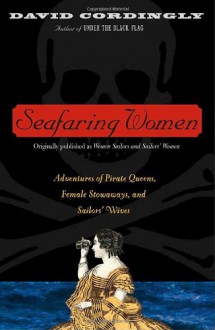So I got to watching Starz's Black Sails recently and although I was hesitant at first, expecting it to be kind of corny, it soon grew on me and I've been binge watching it. The show has grown through the second season and I particularly like Toby Stephens as Captain Flint. (RLS' Treasure Island Captain Flint). I like how they have blended fictional characters in with the romanticized real life ones such as Blackbeard & Charles Vane.
Anyway all of this led me to start thinking about the history of the Caribbean and in particular piracy. From my initial wikipedia searches I found that information seems sparse, which is understandable, given that we're talking about 400 year old history, but I knew there would be someone out there that has written a solid, engaging history.
And so I'm now at the point where I've just purchased 3 books from Amazon based on recommendations from varying places. David Cordingly's name kept popping up with his history Under the black Flag and his more recent Spanish Gold. Finally I stumbled upon Carrie Gibson's Empire's Crossroads.
To be honest I'm sat here now and I'm thinking to myself, how have I left it so long to delve into piracy. Perhaps it's because it's typically romanticized for children, who can pretend to be adventurous, marauding captains with their plastic sword, pirate hat play set from the local toy shop.
Maybe because of this glamorizing of piracy in modern day society and the lack of reliable evidence available it's hard differentiate between what is legend or fantasy and what was real. Hopefully my three purchases will help enlighten me.

 Log in with Facebook
Log in with Facebook 







